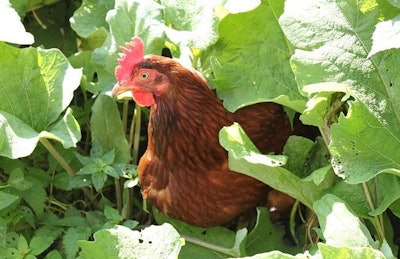
The confinement period for free-range hens for veterinary reasons in the European Union has been extended from 12 weeks to 16 weeks. The so-called derogation period allows eggs from these birds to be marketed as “free-range,” even if the hens have been confined in the house due to a significant disease threat, such as highly pathogenic avian influenza (HPAI).
After extensive consultations with stakeholders, the European Commission has agreed to extend the derogation period in the light of last year’s experiences with HPAI. To reduce a leading risk of transmission of the HPAI virus — from wild birds — free-range egg producers had to confine their birds indoors for prolonged periods. This led to the eggs losing their “outdoor” label, and egg farmers lost the premium for animal welfare-friendly, free-range production methods.
Other regulated conditions for free-range production, such as stocking density, remain unchanged.
According to the commission, the extension is justified to help minimize the financial losses incurred by egg producers in the event of a major disease outbreak.
The commission puts the total laying hen population on the European Union at 390 million, of which around 54 million, or 14 percent, are kept in free-range production systems.
The importance of free-range systems varies widely between member states. Over 40 percent of the EU’s free-range hens are kept in the U.K., where they account for more than half of the country’s layer population.
Other countries with a significant percentage of free-range in total egg output are Ireland (40 percent), Austria (21 percent), France and Germany (both 18 percent), and the Netherlands (17 percent).
The H5N8 HPAI virus variant is currently circulating in some EU member states. Italy’s poultry sector has been worst hit, with 80 outbreaks since January of 2017. Bulgaria has reported cases at four location in the last month, and the virus has been detected in a wild bird in Germany.

















